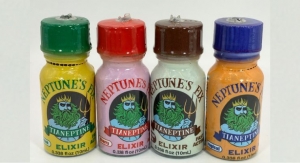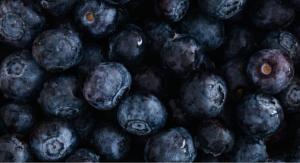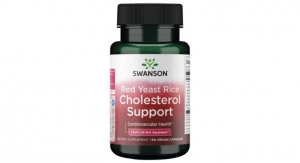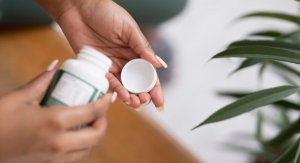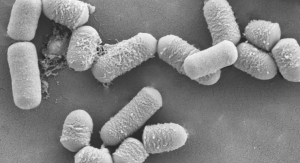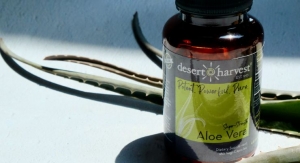09.20.21
Supplementation with phosphocreatine and polyphenols extracted from blueberries may result in improvements to measured strength, power, and endurance, according to a human clinical trial published in the Journal of the International Society of Sports Nutrition.
While expansive studies have been carried out on the amino acid creatine, few studies have been carried out on supplementation with phosphocreatine, a compound which is produced by the action of creatine kinase. Phosphocreatine is endogenous to skeletal muscle tissue, and is considered to recycle ATP, which is the primary carrier of energy in cells.
In the present study, a group of 33 male participants were administered either a phosphocreatine/blueberry extract supplement, a creatine monohydrate supplement, or a placebo, and throughout the 28-day study period, the researchers took measurements of peak torque, average power, and fatigue tests at baseline and at the end of the study. The subjects were all screened for potential confounding factors, including any medications, dietary supplements, nutritional products, or dietary programs.
The phosphocreatine supplement contained 5 grams of phosphocreatine disodium salts (50% creatine) and 200 mg of blueberry extract, while the creatine monohydrate contained 3 grams of its active ingredient at 80% pure creatine.
A polyphenol-rich blueberry extract was added to the experimental formula, the researchers said, in order to attenuate the production of reactive oxygen species in the muscle, which are linked to muscular fatigue and detrimental effects on excitation-contraction coupling and more.
The authors concluded that while supplementing with either the phosphocreatine/polyphenol formula or creatine monohydrate resulted in significant improvements in all three athletic performance domains measured, the former supplement might have an advantage over creatine monohydrate based on having an apparent effect on a greater number of people.
“Few studies have examined the effects of supplementation with phosphocreatine on exercise performance outcomes,” the authors of the study concluded, noting that phosphocreatine disodium salts could have greater solubility than creatine monohydrate, and that phosphocreatine may also have greater bioavailability, resulting in the saturation of creatine stores at a faster rate.
“Overall, the current findings indicated that 28 days of supplementation with both [phosphocreatine/blueberry extract] and [creatine monohydrate] resulted in increases in peak torque and average power, however, there were no mean differences between these groups as determined by repeated measures […] the [phosphocreatine supplement] may have an advantage over [creatine monohydrate] when compared to the placebo group for the proportion of individual subjects that respond favorably to supplementation with meaningful increases in muscular strength.”
While expansive studies have been carried out on the amino acid creatine, few studies have been carried out on supplementation with phosphocreatine, a compound which is produced by the action of creatine kinase. Phosphocreatine is endogenous to skeletal muscle tissue, and is considered to recycle ATP, which is the primary carrier of energy in cells.
In the present study, a group of 33 male participants were administered either a phosphocreatine/blueberry extract supplement, a creatine monohydrate supplement, or a placebo, and throughout the 28-day study period, the researchers took measurements of peak torque, average power, and fatigue tests at baseline and at the end of the study. The subjects were all screened for potential confounding factors, including any medications, dietary supplements, nutritional products, or dietary programs.
The phosphocreatine supplement contained 5 grams of phosphocreatine disodium salts (50% creatine) and 200 mg of blueberry extract, while the creatine monohydrate contained 3 grams of its active ingredient at 80% pure creatine.
A polyphenol-rich blueberry extract was added to the experimental formula, the researchers said, in order to attenuate the production of reactive oxygen species in the muscle, which are linked to muscular fatigue and detrimental effects on excitation-contraction coupling and more.
The authors concluded that while supplementing with either the phosphocreatine/polyphenol formula or creatine monohydrate resulted in significant improvements in all three athletic performance domains measured, the former supplement might have an advantage over creatine monohydrate based on having an apparent effect on a greater number of people.
“Few studies have examined the effects of supplementation with phosphocreatine on exercise performance outcomes,” the authors of the study concluded, noting that phosphocreatine disodium salts could have greater solubility than creatine monohydrate, and that phosphocreatine may also have greater bioavailability, resulting in the saturation of creatine stores at a faster rate.
“Overall, the current findings indicated that 28 days of supplementation with both [phosphocreatine/blueberry extract] and [creatine monohydrate] resulted in increases in peak torque and average power, however, there were no mean differences between these groups as determined by repeated measures […] the [phosphocreatine supplement] may have an advantage over [creatine monohydrate] when compared to the placebo group for the proportion of individual subjects that respond favorably to supplementation with meaningful increases in muscular strength.”


